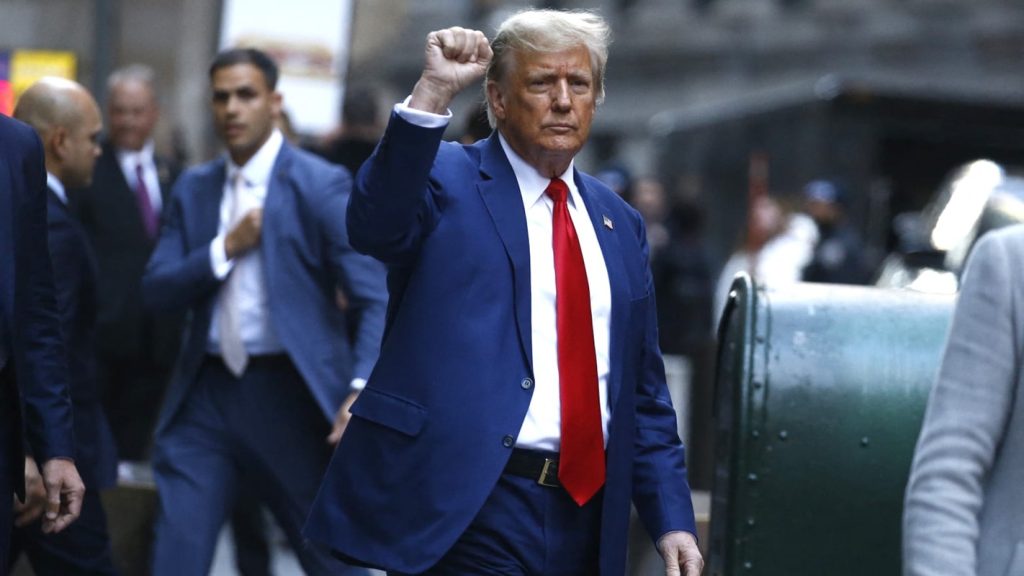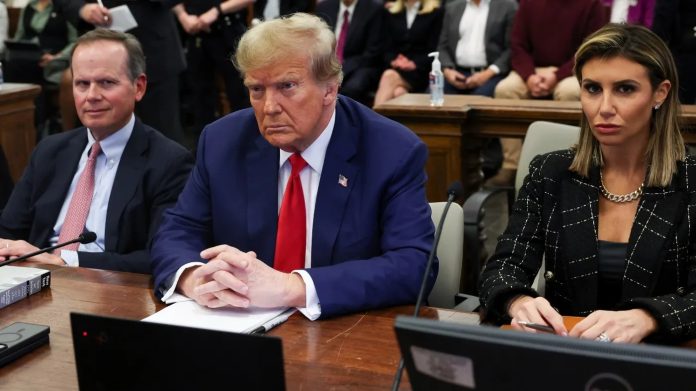Seven months after a trial judge fined Donald Trump $454 million for business frauds deemed “shocking to the conscience,” a New York appeals court on Thursday showed skepticism toward some aspects of the New York attorney general’s fraud case against the former president.
Top 10 Essentials To Survive a Hurricane
A panel of five judges at New York’s Appellate Division, First Department, heard Trump’s appeal, raising concerns over key elements of the case. Their questions touched on the use of a consumer fraud statute, the reasoning behind the hefty financial penalty, and the private nature of the transactions, echoing defense arguments that were dismissed during the lengthy trial earlier this year.
Trump did not attend the hearing for the fraud case.
D. John Sauer, Trump’s attorney, argued that the fraud case lacked victims or complaints. “How can there be a capacity to deceive when there are clear disclaimers?” he asked, referencing legal disclaimers tied to the financial statements in question.
While some judges appeared doubtful of the defense’s arguments — with one judge noting that inaccuracies in Trump’s financial statements could be “completely fallacious” — other questions seemed to reflect the defense’s stance.
Associate Justice David Friedman pointed out that the disputed financial statements weren’t intended for ordinary individuals but were aimed at sophisticated business professionals.
Representing the New York Attorney General’s office, Deputy Solicitor General Judith Vale emphasized the severity of Trump’s alleged misrepresentations, which she argued played a crucial role in securing loans worth hundreds of millions of dollars.
“Deutsche Bank would not have issued these loans without the inflated financial statements,” Vale stated. “These statements were vital to the banks.”
The judges also scrutinized the New York fraud statute, Executive Law 63(12), which was pivotal to the attorney general’s case. Trump’s legal team has contended that the law should not apply to profitable transactions between financial institutions and his company.
Associate Justice John R. Higgitt questioned how the court could delineate when the attorney general was overstepping her jurisdiction under the statute.
Vale defended the attorney general’s actions, asserting that Trump’s fraudulent practices introduced misleading information into the marketplace, and that the penalty served as a deterrent.
“A key purpose of these statutes is to allow the attorney general to act swiftly to stop fraud before harm is done to counterparties,” she said.
Justice Peter Moulton questioned whether the penalty imposed on Trump was excessive given the limited harm to the banks involved, but Vale argued that profitability doesn’t justify fraudulent behavior.

“Success doesn’t excuse fraud. It doesn’t mean you get to keep the profits,” Vale countered.
Although critical at times of the state’s arguments, the justices also challenged Trump’s claims regarding the statute of limitations. Presiding Justice Dianne Renwick emphasized the statute’s intent to “protect honesty and integrity in the marketplace.”
In a trial that concluded in February, New York Judge Arthur Engoron found Trump, his two eldest sons, and top executives at the Trump Organization guilty of inflating Trump’s wealth to secure favorable loan terms. The court fined Trump $454 million for his actions.
The Ultimate Hiking Essentials: Top 10 Must-Have Items for Your Adventure
Following the ruling, Trump posted a $175 million bond as he appeals the judgment.

